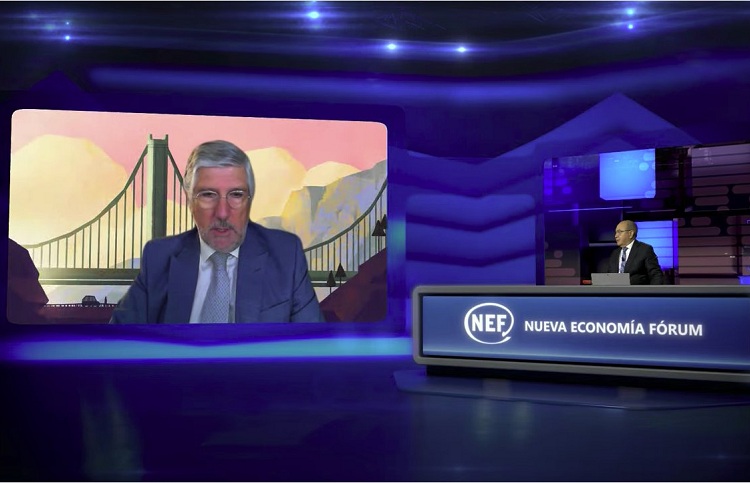The Diplomat
“Morocco has been using hybrid warfare tactics against Spain” for some time now and in this context it should be understood that it has “attacked EU borders” as a way of “deflecting its failure in domestic policy with these actions in foreign policy”. This is one of the main conclusions of the webinar Morocco and Spain, a case of hybrid war? organised yesterday by the Institute for Security and Culture.
Participating in the debate were Manuel R. Torres Soriano, professor at the Pablo de Olavide University (UPO); Guillem Colom Piella, professor at the UPO and author of the report ‘Morocco, the Strait of Gibraltar and the military threat to Spain’; and Carlos Echeverría Jesús, director of the Observatory of Ceuta and Melilla.
Torres Soriano indicated that, when referring to hybrid warfare, “we are talking about the behaviour of an actor who decides to go beyond the limits of what is acceptable when it comes to promoting its interests, even if this means compromising the security and well-being of another country”. In this sense, he considers that Morocco has been promoting for some time now “a type of low-intensity conflict” which, he warns, “will probably continue for a long time, with moments of relaxation and others of acceleration when the aggressor considers that new windows of opportunity open up”.
This is what has happened in recent weeks, according to these experts. For Guillem Colom Piella, “Morocco understands that it must take advantage of the current situation to bend the position of some European countries with respect to Western Sahara”, as the window of opportunity is not so much the controversy that Rabat is trying to raise over Brahim Ghali’s admission to a Spanish hospital as the United States’ recognition of Moroccan aspirations over Western Sahara.
Colom Piella reiterated that “these types of decisions [in reference to what happened in Ceuta last week] are not taken in a vacuum, there is a context and a modus operandi”. In fact, “it can be understood as a reprisal for the health reception of Gali or as another action within the framework of the territorial conflict that Morocco raises and develops with respect to Spanish sovereignty over certain territories”, he pointed out.
And what is behind this? On the one hand, according to these experts, Morocco’s agenda, in which Western Sahara is currently a priority, but from which Ceuta and Melilla cannot be extracted. “Ceuta and Melilla are very hot issues in Morocco’s mentality and history. The duty of every Sultan of Morocco has always been to wage jihad against the two Spanish enclaves”, Colom pointed out.
On the other hand, however, one should not lose sight of the fact that “the current context is determined by the economic consequences of the pandemic, relations with third states such as the US, Israel and Germany, and the perception of insufficient deterrence on the part of Spain”.
As Carlos Echeverría pointed out, “Morocco is trying to divert its failure in domestic policy with this type of foreign policy action”, and to this end “has not hesitated to attack the borders of the European Union”, which places the conflict in a very clear framework. Despite Rabat’s insistence and efforts to the contrary, “this is not a bilateral issue, but yet another violation of international law”.
Echeverría stated that “Morocco is a dictatorship that has invaded Western Sahara and now intends to do the same with Ceuta and Melilla”, that “it is a regime that has not hesitated to deceive its population by spreading false ideas such as that Ceuta and Melilla are Moroccan” and that “it puts its political interests before the lives of its citizens, including thousands of minors”.
Faced with this scenario, the reaction must go hand in hand with “maintaining a firm and credible stance on what Spain considers to be unacceptable behaviour”, in the opinion of Manuel R. Torres Soriano, so that “Rabat must be shown that we can also exploit its vulnerabilities, which are many”.
But it is also necessary to “continue to deepen military deterrence, which sends a clear message of how dangerous the use of this type of strategy can be”. However, there is a problem that the three experts warned of, which in the words of Torres Soriano means that “unfortunately we have witnessed an uninterrupted degradation of Spain’s military deterrence capacity towards Morocco due to a lack of investment, a gap that has also been narrowing as a result of Morocco’s continued policy of acquisitions”.






